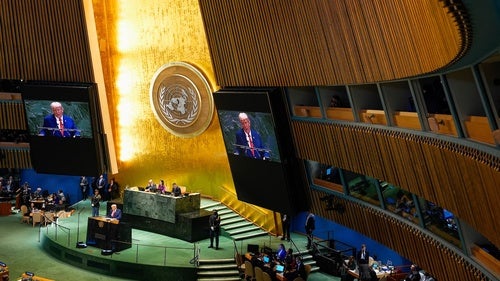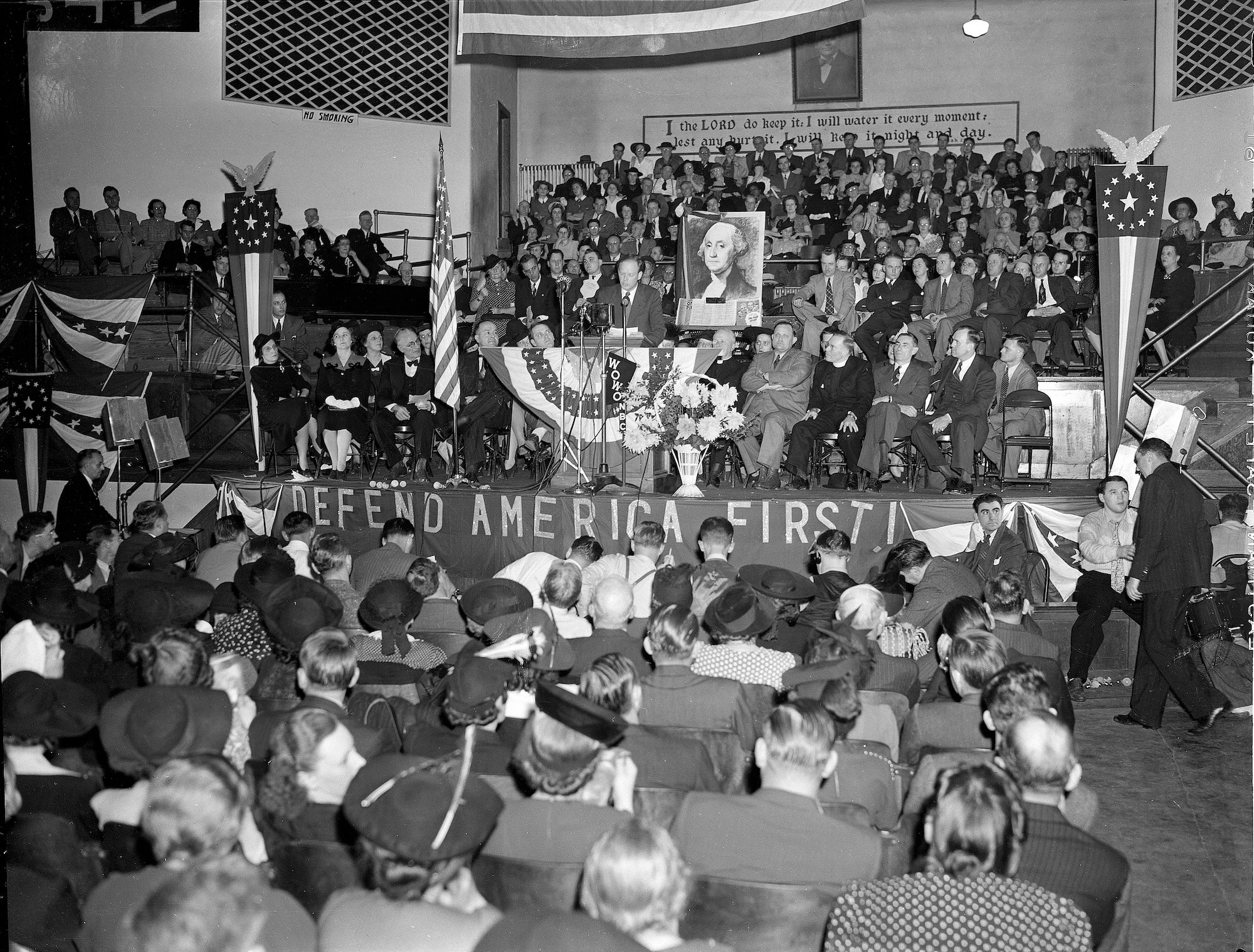At UNGA, Trump's Rejection of Multilateralism Takes Center Stage

While we have been here before, the financial and political standing of the world organization and multilateral cooperation have reached a new nadir in Washington.
US President Donald Trump’s address last Tuesday on the world’s biggest stage was a repudiation of his predecessors from both sides of the aisle who viewed themselves as leaders of the free world and at least modest champions of international collaboration.
The 80th anniversary of the signing and entry into force of the Charter could and should have been an occasion to draw attention to the 1942-1945 United Nations Alliance, whose victory gave rise to the world body. Trump did not mention, let alone congratulate, the United Nations on its 80th anniversary. And while birthdays are an arbitrary moment to take stock, they at least provide a way not to forget.
It was four years ago almost to the day that then-President Joe Biden announced, “America is back.” A momentary sigh of relief was heaved by those of us who believe that partners and cooperation are essential attributes of a responsible and effective foreign policy.
However, rather than thinking that the first Trump administration was an aberration, it is plausible that the Biden years were the anomaly, and that the current administration’s demonstrated distaste for the United Nations is the new normal.
It is worth recalling that the current know-nothing label of "America First" was not invented by Trump and his nativist followers. Rather, the isolationist slogan emanated from a pressure group led by the proto-fascist trio of Henry Ford, Father Charles E. Coughlin, and Charles Lindberg, who sought to keep the United States out of World War II. The America First Committee was disbanded a few days after Pearl Harbor.

The founding of the United Nations and the system of functional organizations reflected the clear recognition by President Franklin D. Roosevelt and after President Harry Truman about why Washington supported international cooperation. The creation of the “United Nations” was not in San Francisco in June 1945, but rather in Washington, DC, on January 1, 1942, when 26—and later 44—countries signed the “Declaration by United Nations.”
Most fervent friends as well as foes of the current world organization are unaware that this label for the military alliance to crush fascism also entailed a parallel commitment to multilateralism as the standard operating procedure during the war. The goal was to continue afterwards and guide post-war peace and prosperity through an institution with the same name and approach.
World War II followed World War I—the first “war to end all wars”—and led to the current United Nations organization, following a clear demonstration that rampant nationalism and going-it-alone were a vacuous basis for subsequent peace and prosperity. The irony, of course, is that our own growing list of intractable problems—including many dismissed by Trump and ranging from climate change and migration to pandemics and terrorism—clearly go well beyond the power of countries, including this one, to act alone.
Trump’s ongoing dismissal of the United Nations illustrates Washington’s continually fluctuating attitudes toward multilateralism. They have reflected not only Roosevelts’ vision and enthusiastic backing for the second experiment in universal intergovernmental organization, but also the Senate’s rejection of the League of Nations, President Woodrow Wilson’s brainchild.
The ups and downs over the years have included budgetary withholdings of UN dues and pulling out of organizations like the International Labour Organization and the United Nations Educational, Scientific, and Cultural Organization (UNESCO). However, on balance, the United States has overwhelmingly served as a pillar of the rules-based order about to implode. In his history of the tumultuous United States-United Nations relationship in the 20th century, my late friend, Columbia University’s Ed Luck, argued that the pattern of US policies sent “mixed messages.”
Trump's ongoing dismissal of the United Nations illustrates Washington’s continually fluctuating attitudes toward multilateralism.
The Trump administration’s first decisions included withdrawing from the World Health Organization, UNESCO, the Human Rights Council, and Paris Agreement on Climate Change. His UN address went beyond those destructive steps, demonstrating a Castro-like sensitivity to the patience of listeners. He spoke for almost an hour—nearly four times the suggested limit.
Predictably, he tossed in attacks of favorite targets, namely the anti-woke notions in the UN system for the “globalist scam” of climate change and accompanying green policies. He lamented the UN’s "funding an assault on Western countries and their borders." His standing plea for a coveted Nobel Peace prize cited the disputed proposition that he had ended seven wars and that “the UN never helped.” Facts mattered not, as usual, because the world organization was actively involved in peace efforts and humanitarian operations in all of them.
Less predictably, he offered no suggestions as to how to reform the United Nations, although that necessity looms as the United States has already illegally stopped paying its obligatory dues of 22 percent as part of the US’ promised 84 percent reduction in all international programming. Financial woes have already crippled the United Nations and led Secretary-General António Guterres to propose lopping 20 percent of the staff and moving some headquarters operations from New York and Geneva to such cheaper duty stations as Nairobi and Kigali.
Even more surprising were Trump’s complaints about the inconvenience of a faulty escalator and a temporary interruption in his teleprompter. Both were promptly picked up by conspiracy-prone White House staff who speculated that it was done to sabotage the president’s address. Perhaps more in keeping with Trump’s temperament was his hurt pride as the real estate developer who had lost a bid to renovate the UN’s headquarters in Turtle Bay.
Meanwhile, China presented itself as a stable defender of the rules-based international order and multilateralism. As implausible as that argument should be, in the face of Washington’s wholesale retreat, Beijing is the beneficiary of a bargain-basement purchase price for appearing to champion the values behind the UN Charter.
Some observers judge this to be a transformative moment for the United Nations and for US foreign policy, while others believe—or desperately hope—that the present dyspeptic moment will pass. While we have been here before, the financial and political standing of the world organization and multilateral cooperation have reached a new nadir in Washington.
The wartime United Nations contradicts the conventional wisdom that liberalism was abandoned to defeat Germany and Japan; in fact, Kantian ideals were essential to the Hobbesian objective of state survival.
When governments decide to use intergovernmental organizations, they work. The wartime actions of the UN’s founders, especially Washington, demonstrate that going-it-alone is not a replacement for more robust multilateralism. If global problems require global solutions, they also require strengthened intergovernmental organizations, especially those of the UN system.

